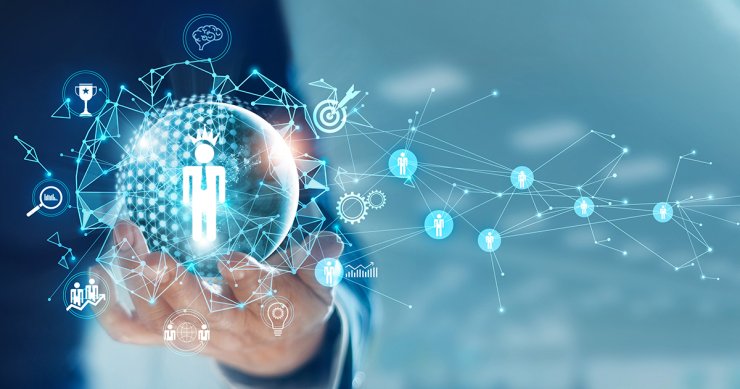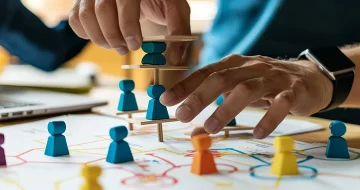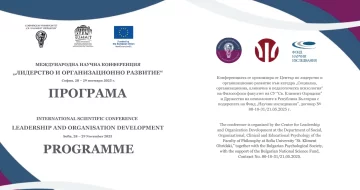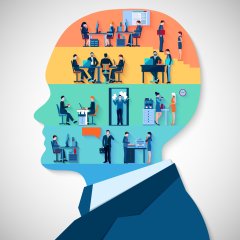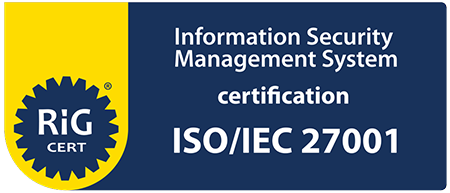Generative AI has captivated the world’s attention in the last year and is set to change the way we work forever. The field of Human Resources is no exception.
While many professionals across industries are concerned about job loss due to AI, our outlook is not so negative. Technological advancements have been changing the way we work since the Industrial Revolution and while some occupations and tasks may become obsolete or are transferred over to machines, they also open new doors of opportunity.
Artificial intelligence is already being used in HR and, so far, the result hasn’t been fewer positions - it’s lead to more time opened up for HR professionals to focus on what really matters.
In this article we list some of the ways AI is used in HR currently and share how it’s impacted our work processes.
Generating Content
The most obvious application of AI is in generating content and this is most common use in HR, according to our 2023 survey, “AI Application in a Corporate Environment”. For HR pros this means help with writing job ads, emails, training materials, social media posts, and more. A lot of these tasks are routine and don’t particularly rely on being original, so it’s a perfect fit for AI.
While the content usually needs to be tweaked and edited by a person, generating it through AI is still a huge time-saver.
Screening Resumes and Matching Candidates
HR professionals often have to read through a huge number of resumes when hiring for a role - sometimes in the hundreds! - which is both time-consuming and inefficient, as it’s difficult to keep all the different candidates’ information straight in order to make an informed choice.
While this might mean job applicants will have to adapt their resumes to be more AI friendly, in general, it streamlines the selection process and makes it more objective.
Employee Engagement and Development
AI can be especially useful for tracking employee engagement in big organizations with lots of employees. Tools, such as the Employee Pulse Survey, collect more frequent, actionable employee feedback that’s then analysed by AI to detect changes in their wellbeing and engagement. Detecting potential issues quickly so measures can be taken before problems take hold is crucial in this process and it’s made significantly easier thanks to artificial intelligence.
In our work, we find AI most useful when dealing with large amounts of free-form feedback from employees. AI helps us quickly identify patterns and get a clear picture of the situation at hand.
AI tools can also help create personalized training and development plans by identifying skill gaps, recommending the appropriate training courses, and later measure the effectiveness of the programs.
How AI Is Changing the Workforce
While many people are worried about losing their jobs to AI, the reality is that the technology has led to the expansion of roles and new skill requirements. It’s HR’s responsibility to predict what new skills and specialists might be needed and plan accordingly.
Our recommendation is for HR professionals to regularly review processes and the professional landscape to identify opportunities for optimisation and potentials gaps in employee knowledge and emerging tasks.
Can AI Replace HR Professionals?
The human element is integral to the work of HR professionals everywhere. While the technology can help with the shortlisting process, potential employees are more than just what’s listed on their resume. Only a human being can assess another person’s character and factor in abstract aspects, such as whether or not the given applicant would fit into the team or company culture, or if they’re passionate about the work they do.
Generative AI is also not what is considered “true artificial intelligence” and it’s designed to analyse existing data to then generate what might be the statistically most plausible answer to a query. As such, the technology still leaves a lot to be desired in terms of accuracy and the generated content needs to be checked and edited by a human.
HR professionals should embrace AI since it’s here to stay. With the right mindset, it can be an incredibly useful tool that will free us up to do what humans do best - relate to each other.
